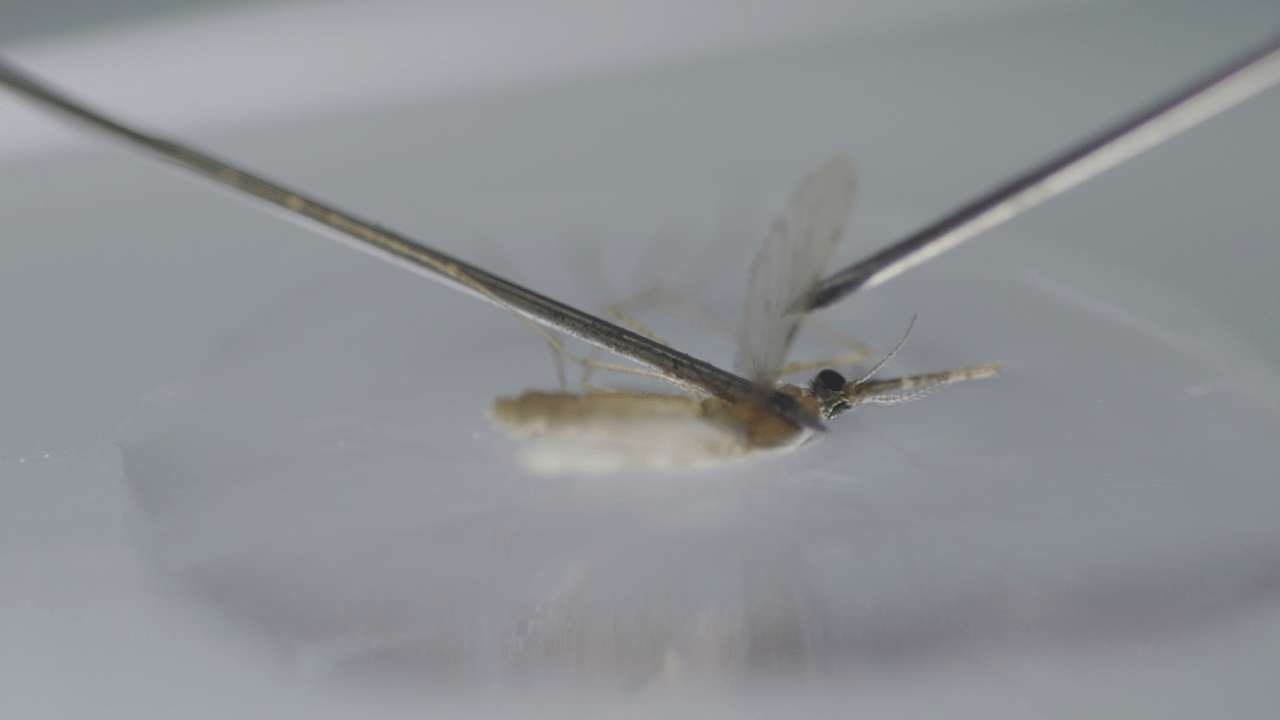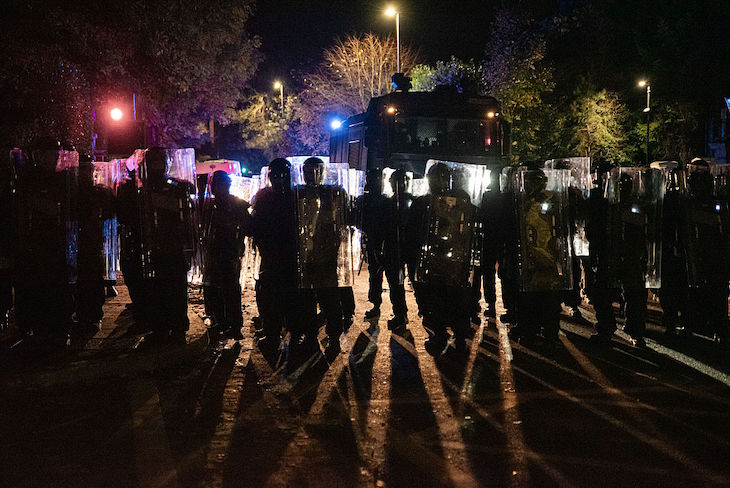If you transcribed the narrator’s script in almost any episode of Horizon, you’d notice something striking: an awful lot of the phrases would end with a colon, and for one obvious reason: to play a neat trick on the viewers: that of making them keen to hear what comes next. (You get the idea.) Monday’s programme therefore began by explaining that the mosquito is ‘the target of one of medical science’s greatest quests: the battle to save millions of lives and end a scourge that has shaped human history: malaria’.
Unusually for an uncompromising science documentary, the finale was a genuine tear-jerker
Now in its 51st year, Horizon has spent at least the last ten of them often trying too hard to reassure us that science isn’t boring (no, honestly, please don’t switch channels). But with The Battle to Beat Malaria it was back to its old-school best – telling a complicated story clearly and authoritatively; structured in such a way as to provide real narrative thrust; and above all, relying on the material itself, rather than a hyperbolic voice-over, to supply the excitement.
Even that dramatic introduction, for example, was no exaggeration. Despite our fear of them, sharks kill around ten people annually; mosquitos between 600,000 and a million, most of them children and an overwhelming majority of them in Africa. As for shaping history, that was admittedly a little sketchier, but we did get a few snippets about malaria’s role in the rise of the Roman empire (mainly by killing its enemies) and how the huge number of deaths it caused in the second world war led to the invention of DDT.
Far more thorough was the scientific background. Dr Erica McAlister at the Natural History Museum showed us a selection of her 150,000 mosquito specimens, and explained exactly how and why the females inject their saliva when sucking human blood (perhaps surprisingly, the males are veggies). We then moved on to the parasites the saliva contains – so much harder to vaccinate against than viruses and bacteria that they’ve defeated science for centuries, and with a blood-infecting MO that swings into action long before the body’s immune system has had a chance to react.
But could the Jenner Institute in Oxford – the lab that brought us AstraZeneca – have spotted the parasites’ one potential weak spot? And if so, could it create an effective and safe vaccine suitable for mass production and cheap enough for use in Africa? The answers were, respectively, a firm yes and a far more tortuous one.
As it traced the 13-year process from experiments to trials to negotiations with manufacturers to more and more trials and finally to the long wait for WHO approval, the programme took on the shape of a slow-moving but increasingly gripping thriller.
It also added a powerful human dimension. In Africa, we got the backstories of several of the doctors, parents and children desperate for a vaccine. In Oxford, we watched the scientists combining their terrifyingly important work (granted, it’s not TV reviewing, but still…) with weirdly recognisable British daily life. And, somewhat unusually for an uncompromising science documentary, the finale was a genuine tear-jerker, with all hoops jumped and a closing caption informing us that the vaccine rollout began earlier this month with the inoculation of a baby in Ivory Coast.
Sadly, the programme was probably right in feeling obliged these days to defend vaccines in general as beneficial to the human race. Otherwise, this was an entirely heartening experience: both in the modestly worn heroism of the scientists and in the BBC devoting an hour of primetime to doing them full and serious-minded justice.
I’ve long thought that there are too many cop shows about the police being either brilliant or evil and not enough about them being what they actually seem to be – which is a bit rubbish. Happily, that gap has now been partly filled by Piglets, a new comedy whose title police leaders have (a bit rubbishly) denounced as ‘highly offensive’.
The title in question refers to a batch of trainee officers freshly recruited to boost police numbers, as blithely promised by pretty much every government ever. These trainees are of course a mixed bunch, but they do have one thing in common – so far at least, none of them should be anywhere near a police station.
Piglets is created by the people behind the estimable Green Wing and already promises to be equally great as a fast-paced, sometimes daft, often broad piece of unabashed entertainment. In fact, I can’t think of many sitcom first episodes that have done such a fine job of not just introducing but establishing a large cast of characters while still keeping the blizzard of good gags coming. As in Green Wing, there’s also the presence of Mark Heap, who, with the possible exception of Matt Berry, must be the funniest comic actor around who always plays the same character: in Heap’s case one where pompousness, nervousness and incompetence are immaculately intertwined.








Comments